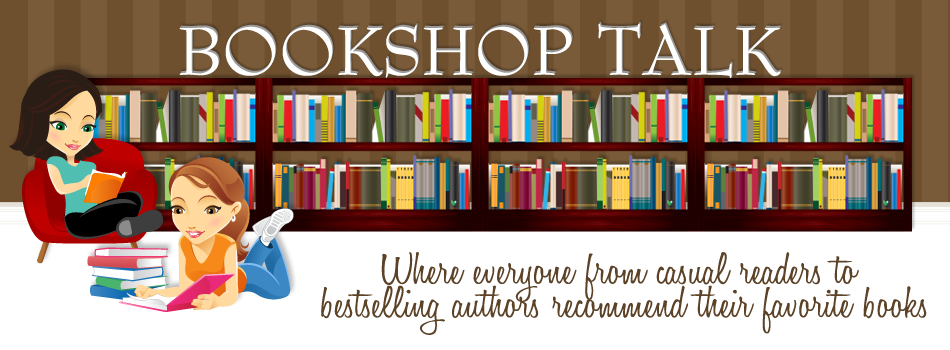As an avid reader of memoirs, I was intrigued by this ten-month old article I discovered in The New York Times recently, called “The Problem with Memoirs.”
According to the article, the problem with memoirs is that there are too many of them. That these days, anyone with a sob story or an axe to grind can air their dirty laundry to the world in a self-indulgent splatter of overshare and TMI. Back when memoir was a “real” art form, only people with exceptional lives or exceptional writing skills attempted it; now, anyone who’s willing to spill the beans on tantalizing personal secrets can get a 6-figure publishing advance in a culture that loves voyeurism, trashy reality TV, and narcissistic personalities.
I feel conflicted about the issue. On the one hand, I’ve been personally helped by memoirs that have articulated struggles I’ve experienced in ways I wouldn’t have been able to express on my own. It’s nice to hear the perspective of someone who has walked where you’re walking, and has made it through to the other side. It’s helpful to know you’re not alone. Even in situations where I don’t relate directly, a well-written memoir can provide deeply moving insights into how real people make sense of a world that is, in many ways, incomprehensible — and that is a wonderful thing.
On the other hand, I’ve read memoirs that are little more than thinly-veiled self-aggrandizement and sensationalism. I confess, I found them alarming and distasteful — even more alarming and distasteful than objectionable fiction I’ve encountered. It’s like watching a live stage production versus a film. You can get away with a lot more in film without shocking your audience because there is something about knowing that the actors are in the same room with you, breathing the same air, that makes the experience more visceral. When you know what you’re reading is a “true story,” it hits closer to home.
Or does it?
Have I created a double-standard in my mind? Is there really something worse about bad memoir than bad fiction? Is it less literary? Is it more dangerous to tell a story about yourself as opposed to a story about a character you’ve created (and if that’s true, are the rewards potentially greater)? Does the entire genre deserve suspicion and derision, or is it like any form of artistic expression — there are good and bad novels, good and bad paintings, good and bad theatre, good and bad sculpture — and we should honor the good and avoid the bad?
I’d love to have a great discussion about this, so sound off in the comments below!
Also . . . any memoirs that you've LOVED, or didn't like at all?
Also . . . any memoirs that you've LOVED, or didn't like at all?
Read Katie's review of the memoir, LIMBO, here.






















17 comments:
Great topic! I don't read a lot of memoirs because I have a hard time believing that conversations twenty years ago, and details of events, can be remembered with such "accuracy."
So it's difficult for me to get into the story as easily as I do when I know something is entirely made up.
However, there have been some memoirs I've read that were just so entertaining, and fascinating, that I couldn't put them down.
I'm going to do a review on this one at some point, but I totally loved Paul Burrell's "A Royal Duty," about his time as the Queen's footman, then Diana's right hand guy for ten years or so. The story isn't at all vindictive, nor did it seem exaggerated at all. It's just a story about things he remembers - moments in time that now seem highly significant, not only to him, but to the rest of the world. I was fascinated by it.
I also loved Lance Armstrong's memoir, It's Not About the Bike. Great stuff! I wasn't even a fan when I read it, but my husband was reading it on a long flight, and I was looking around his shoulder to read it, and became totally wrapped up in the story.
The most epic memoir I know of is Winston Churchill's, which I think is several volumes. I've listened to a lot of it on audio book - we're talking THOUSANDS of pages long, in print - and there's some really amazing stuff in there. My husband read everything, and it's by far his favorite autobiography. He still talks about it quite a lot, and he read it several years ago.
Overall, I'm on the side of finding it hard to take memoirs at face value. For one thing . . . very, VERY few of these people write the memoirs themselves, anyway, and as a writer myself, I know how important voice is to portray HONEST emotions in a scene. I can totally picture ghost writers in interviews saying, "And how did that make you feel, Mr. President. Were you frightened?" And the reply: "Yes, I suppose you could say I was frightened." Then the book ends up saying "Even as President of the United States, I found myself terrified. On the edge of shaking. What would these people do next? How would I deal with it? But I had to be the strong one . . . the leader. My fear would have to be replaced by courage!" On and on.
That's a writer for ya! And certainly not the typical person who "writes" a memoir on their own. :)
Amy, great comment. I think a lot of people have trouble getting into memoirs for the same reasons you mention. A couple of thoughts...
First, as opposed to autobiography, which is told chronologically and must be strictly accurate in terms of dates and events, memoir is a literary retelling of real life events. It is more concerned with "emotional" truth than historical accuracy. This doesn't mean that a memoirist can just make stuff up, but it's okay for scenes and conversations to be dramatized for literary effect, so long as the emotional content remains true and it's basically consistent with actual events. Like fiction, memoir is concerned with literary themes and is crafted with a strong narrative arc (at least good memoir is).
Of course, there is some overlap between autobiography and memoir, but that's the basic gist.
Also, you're right that most memoirs about famous people aren't self-penned. That kind of defeats the purpose of a memoir for me, so I don't read a ton of them (though with an amazing story like Lance Armstrong, it's probably well worth the read, even if it might not be completely in his own words!).
My favorite memoirs are those by regular people who are exceptional writers -- or, perhaps, skilled authors who decide to write a memoir! A few of my favorite memoirs include...
--Limbo by A. Manette Ansay
--I Know Why the Caged Bird Sings by Maya Angelou
--Angela's Ashes by Frank McCourt
--The Tender Bar by J.R. Moehringer
--Night by Elie Wiesel
(Note that most of the titles I've just mentioned contain some mature content...)
In the end, I know that the "fuzziness" of memoir leaves some people a little cold, and I think that's perfectly legitimate. Fortunately there are lots of literary genres to satisfy lots of different tastes! :-)
OH! I get it. That all makes sense. But still, when the typical reader is reading a memoir, they are taking the conversations and events as factual - rather than a bit overdramatized - given that the person writing the story was personally involved. So it's still difficult for me to trust what's being told to me, compared to what really happened.
Churchill's is definitely linear, so an autobiography, but Armstrong's and Burrell's books seem to be true memoirs. They're just glimpses into particular bits of their lives.
My mom just read Shirley Temple's autobiography (sorry, I'm still placing these in the same-ish category), and totally loved it. But again, I kept asking my mom, but HOW does Shirley remember exactly how she felt on that movie set when she was THREE? Sheesh. I mean, I still enjoy (a lot) memoirs and autobiographies, but it's just a tough sell for me!
I like reading memoirs about overcoming trials, but not so much the ones where the writer describes in great detail their lives and their mistakes in an attempt to justify the things they've done wrong. I'm currently reading Broken and though the person it's about has a lot of problems and goes through some horrible things, he changes in the end and finds redemption and overcomes.
Amy:But still, when the typical reader is reading a memoir, they are taking the conversations and events as factual - rather than a bit overdramatized - given that the person writing the story was personally involved. So it's still difficult for me to trust what's being told to me, compared to what really happened.
Yup, I think lots of people feel about it just the way you do. It's kind of like finding out that a movie you loved that was supposedly "based on a true story" got all Hollywood-ized and didn't really happen that way at all *cough*The Social Network*cough*. ;-)
And sometimes people totally do make stuff up. Oprah was pretty embarrassed when she picked James Frey's A Million Little Pieces for her book club only to discover that huge chunks of it were completely fabricated. I think stuff like that is one of the reasons the genre itself is regarded somewhat suspiciously in some corners.
Alice: TOTALLY agree. A couple of memoirs I've read fall into that category, and it made me want to punch the author in the face. I've never heard of Broken; I'll have to check it otu!
If a person in a memoir says something like "Wingardium Leviosa" and believes that the saying of those two words will cause something to levitate, then they are loopy--and their memoir is bound to be about their struggle with loopiness. As someone who suffers from loopiness (and please see my seriousness in my lighthearted usage), I don't want to read about others' sufferings. And it seems like memoirs are always about others' sufferings--which probably means I need to read more memoirs. When I read for pleasure, I want to ESCAPE. I want people to say magical words and then see magical things happen.
However, I know lots of folks aren't like me (i.e. a fiction purist). I'm certain lots of folks feel as you do, Katie, that sometimes it's nice to "hear the perspective of someone who has walked where you're walking, and has made it through to the other side." So I won't knock memoirs.
I have read a few (very few), but the only memoir I read and afterward raved about was Roald Dahl's BOY (about his boyhood, obviously), which was so full of moments that inspired his later writings that I couldn't help but giggle with delight, because I could connect the memoir to his fiction.
I am truly a fiction addict. I know I should branch out a bit more. I read non-fiction when I need to do research (which is often), and I read poetry because my husband is a professional poet, but I don't do a lot of creative non-fiction. Thanks for giving us a list of memoirs you enjoyed, Katie. I'll check some of them out (in particular, LIMBO, which I own--thanks to you--and have not yet finished).
This was a super insightful post!
One more thing: Are Laura Ingalls Wilder's books considered memoirs? Or are they too fictionalized? If they are memoirs, then I take back everything I said about liking only fiction. I ADORE those books...
Kim, really interesting comment. I think the way you relate to memoir might go along with the point I make in my post, where I compare reading memoir to watching live theatre vs. film. To borrow your example, Harry Potter had his share of suffering, of course, but because he's a fictitious character and the setting is a magical world, there is a certain distance about it that makes it more palatable. I actually think this is one of memoir's biggest liabilities. People generally need that distance to process the material (and not just readers -- authors, too!). Memoirs that are just one big tragedy after the next are extremely difficult to read, much more difficult to read than tragic fiction. It takes a really good memoirist to produce the sort of cathartic response you get when you read good fiction. I expect that most people probably don't have the rare combination of self-awareness, acceptance, and writing skill that would be required to create it (which just might be what the author of the New York Times article was complaining about, now that I think about it).
I think the memoirs I've mentioned above are exceptions, though. They don't wallow in tragedy, even though there is some. There is perspective and grace. Too many memoirs wallow.
I Googled the Laura Ingalls Wilder books and they're definitely categorized as novels. But if they're extremely autobiographical, they might be borderline. I actually have yet to read the Little House books, though they are on my list...
One memoir I'm DYING to read is C.S. Lewis's Surprised by Joy. I've heard it's just wonderful. If it is, I'll let you all know... :-)
Firstly, forgive the lack of appropriate punctuation with titles; I'm not HTML savvy, so you'll just have to pretend everything is properly italicized or underlined. :)
I'm not a big fan of memoirs not so much on principle but rather because I have pretty straightforward tastes: fiction, or educational non-fiction (think history, ecology or health tomes here). Laura Ingalls Wilder's books and Caddie Woodlawn are the exceptions, though.
I also haven't read any really good ones other than I Know Why the Caged Bird Sings, which I do recall loving. The most recent memoir I read was Rousseau's Confessions; my hubby's taking an online Western Lit class and I'm reading along with him and watching the lectures, for fun. And all I can say is that Rousseau is one twisted fellow and I found that I was severely put off by his lack of accountability. Apparently I agree with the character of von Aschenbach (a writer) from Death In Venice (our latest World lit assignment) that characters are most interesting because of 'despite' - those who flourish despite poverty, ill health, disappointments, etc. I'd rather not hear about your inescapable Freudian sexual hang-ups, thank you very much.
Nice point about the most interesting characters flourishing "despite," Lady Thought. I think that's true for both fiction and memoir.
People around the world have known Lance Armstrong as a a bicycle hero, a winner of Tour de France a record 7 times in his career. They also know him as a controversial character with doping allegations and fights with cancer... This one's not about that.
This 2000 autobiographical book with Sally Jenkins, written shortly after he won the 1999 Tour de France. It is about how a cocky brash kid who drove a red sports car, who struggled through life with parental issues, peer pressures, reached the top, fell into cancer, with hardly 3% chance of survival... in 1996, when he had been diagnosed with testicular cancer, which spread to his lungs, abdomen and brain. This disrupted his career, and the book is about his journey back...
The book covers his story from childhood to the 1999 Tour, and the birth of his first child. A subsequent autobiographical instalment, entitled Every Second Counts and also with Sally Jenkins as co-author, continues the narrative until his 2003 Tour victory.
Read this if you ever feel the need of encouragement - to never quit. Even when you want to. Even when you have to. Even when you need to... you don't quit.. Why? Because you never give up.
I honestly have never been a fan of memoirs. But I do know that the memoirs of historical heroes have really given me different perspectives on history.
"I want to win a book."
I honestly have never been a fan of memoirs. But I do know that the memoirs of historical heroes have really given me different perspectives on history.
"I want to win a book."
Interesting topic... I have loved memoir ever since I read Helen Keller's autobiography in primary school and have read hundreds of memoirs since that time.
I feel this genre offers readers a rare chance to deeply explore the way another person has lived in and thought about the world. There are very few opportunities to have these conversations in real life and I love that memoirists are willing to risk sharing so much of who they are with the world.
Whether or not someone is able to perfectly recall the exact words another spoke does not diminish a memoir for me if I can feel the emotional honesty in their telling.
I don't read a lot of memoirs, partly because I'm a very cynical person who doesn't believe there's such a thing as complete honesty in the world of fame and partly because I'm just not interested in many of them. I have read some very good ones, though, so I wouldn't write the genre off entirely. Some of my favorites are As You Wish by Cary Elwes (Wesley from The Princess Bride!) and Ben Carson's numerous memoirs/autobiographies.
Also, I want to win a book. Forgot to add that at the bottom.
Post a Comment